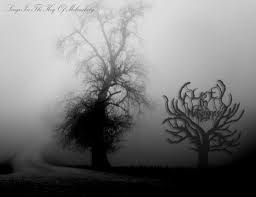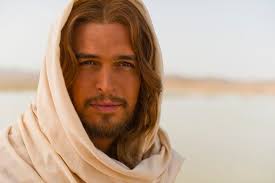Liturgical Readings for : Saturday, 25th November, 2023
Saturday of the thirty-Third Week in Ordinary Time, Year 1
Optional Memorial of Ss Catherine of Alexandria,
Clement I, pope and martyr, and Colman, bishop
FIRST READING
A reading from the book of Maccabees 6:1-13
I am dying of melancholy because of the wrong I did in Jerusalem.
King Antiochus was making his way across the upper provinces; he had heard that in Persia there was a city called Elymais, renowned for its riches, its silver and gold, and its very wealthy temple containing golden armour, breastplates and weapons, left there by Alexander son of Philip, the king of Macedon, the first to reign over the Greeks. He therefore went and attempted to take the city and pillage it, but without success, since the citizens learnt of his intention, and offered him a stiff resistance, whereupon he turned about and retreated, disconsolate, in the direction of Babylon.
But while he was still in Persia news reached him that the armies that had invaded the land of Judah had been defeated, and that Lysias in particular had advanced in massive strength, only to be forced to turn and flee before the Jews; these had been strengthened by the acquisition of arms, supplies and abundant spoils from the armies they had cut to pieces; they had overthrown the abomination he had erected over the altar in Jerusalem, and had encircled the sanctuary with high walls as in the past, and had fortified Bethzur, one of his cities.

When the king heard this news he was amazed and profoundly shaken; he threw himself on his bed and fell into a lethargy from acute disappointment, because things had not turned out for him as he had planned. And there he remained for many days, subject to deep and recurrent fits of melancholy, until he understood that he was dying. Then summoning all his friends, he said to them,
‘Sleep evades my eyes, and my heart is cowed by anxiety. I have been asking myself how I could have come to such a pitch of distress, so great a flood as that which now engulfs me-I who was so generous and well-loved in my heyday. But now I remember the wrong I did in Jerusalem when I seized all the vessels of silver and gold there, and ordered the extermination of the inhabitants of Judah for no reason at all.
This, I am convinced, is why these misfortunes have over-taken me, and why I am dying of melancholy in a foreign land.’
The Word of the Lord. Thanks be to God.
Responsorial Psalm Ps 9
Response I will rejoice in your saving help, O Lord.
1. I will praise you, Lord, with all my heart; I will recount all your wonders.
I will rejoice in you and be glad, and sing psalms to your name, O Most High. Response
2.See ho my enemies turn back, how they stumble and perish before you.
You have checked the nations, destroyed the wicked;
you have wiped out their name for ever and ever. Response
3.The nations’ feet have been caught in the snare they laid;
for the needy shall not always be forgotten nor the hopes of the poor be in vain. Response
Gospel Acclamation Ps 9:2-4. 6. 16-19. Rv v 16
Alleluia, alleluia!
Blessed are those who, with a noble and generous heart,
take the word of God to themselves and yield a harvest through their perseverance.
Alleluia!
Or 2 Tim 1:10
Alleluia, alleluia!
Our Saviour Jesus Christ abolished death, and he has proclaimed life through the Gospels.
Alleluia!
GOSPEL
The Lord be with you. And with your spirit
A reading from the holy Gospel according to Luke 20:27-40 Glory to you, O Lord.
He is God, not of the dead, but of the living.
Some Sadducees-those who say that there is no resurrection-approached Jesus and they put this question to him,
‘Master, we have it from Moses in writing, that if a man’s married brother dies childless, the man must marry the widow to raise up children for his brother. Well then, there were seven brothers. The first, having married a wife, died childless. The second and then the third married the widow. And the same with all seven, they died leaving no children. Finally the woman herself died Now, at the resurrection, to which of them will she be wife since she had been married to all seven?’

Jesus replied,
‘The children of this world take wives and husbands, but those who are judged worthy of a place in the other world and if’ the resurrection from the dead do not marry because they can no longer die, for they are the same as the angels, and being children of the resurrection they are sons of God. And Moses himself implies that the dead rise again, in the passage about the bush where he calls the Lord the God of Abraham, the God of Isaac and the God of Jacob
Now he is God, not of the dead, but of the living; for to him all men are in fact alive.’
Some scribes then spoke up.
‘Well put, Master’ they said- because they would not dare to ask him any more questions.
The Gospel of the Lord Praise to you, Lord Jesus Christ.
********************
Gospel Reflection Saturday Thirty-Third Week in Ordinary Time Luke 20:27–40
In today’s gospel reading, Jesus’ opponents, the Sadducees, who did not believe in life after death, present a scenario to Jesus which seeks to make belief in life after death look ridiculous. It is obvious they understand that Jesus himself teaches the reality of life after death. Their challenge to Jesus is based on the false assumption that if there is life after death it will simply be a kind of continuation of this earthly life. In his reply Jesus challenges this false assumption. He declares that those who belong to the ‘other world’ beyond this earthly life ‘no longer die’. They live with a life that is eternal. Therefore, there is no need for procreation or for marriage that is the basis of procreation. In other words, because the life that we enter after death is eternal life, the way we will relate to each other in this life to come will be fundamentally different to how we relate to each other now. Jesus does not elaborate on how we will relate to each other in the next life; he simply states that this new way of relating to each other will be qualitatively different to how we relate to each other in this earthly life.
When Jesus does speak about the life beyond this life, however, he uses images that suggest some form of communal life, such as the image of the great banquet at which people gather. He invites us to imagine a life in which we are in a new relationship with himself, with God, and with each other. Jesus’ earthly ministry was about gathering people together around himself, forming a new kind of community. He understood this community, which was soon called the church, to be a sign of the life to come; it pointed ahead to life in God’s kingdom. Yet, Jesus suggests that the life of heaven is so totally new that no earthly experience can compare with it.
________________
The Scripture Readings are taken from The Jerusalem Bible, published 1966 by Darton, Longman & Todd Ltd.







![#KingdompadiMusicVid: James Akinwumi | Our God [@MinisterjamesOF]](https://www.kingdompadi.com/wp-content/uploads/2025/03/WhatsApp-Image-2025-03-03-at-15.05.04_acb15277-150x150.jpg)





